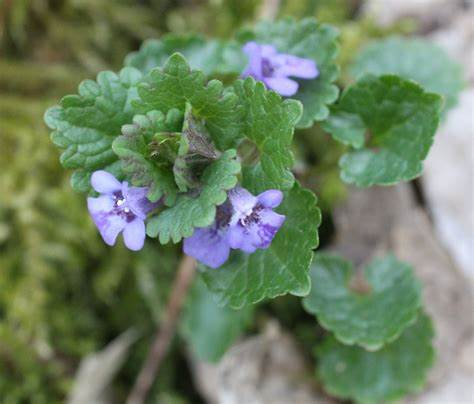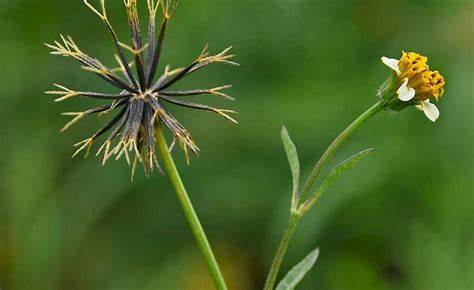How could this web site possibly ignore a topic so delicious as "weeds"? This is long enough to be Friday's post, but I'll let it go live now, in honor of the occasion.
What gardeners need most seems to be a clearer way of thinking. The wild plants that sprout in the garden, and threaten to crowd out the vegetables and the pricey imported flowers, are mostly not nuisances after all. There are exceptions, like Bermuda grass, that are neither useful nor ornamental, but most of these volunteer plants are actually what a frugal person wants to eat in spring.
No better salve or lotion's found
For bruises, cuts, scrapes, burns of skin;
Eat when the leaves are young and thin.
Leaves are smooth as burs are tough.
If last year's roots went to waste,
Here's a pleasant sour taste.
Bitterness the palate grieves;
But the sap removes all warts
And roots make a tea of sorts.
They delight the Japanese;
Roots they pick, peel thick, and pickle
Lend steamed rice a pleasant tickle.
Morning's work for a strong young man;
While they thicken sauces, they
Help keep heart attacks away.
Till a berry, yellow, sweet,
Shows where that husk splits and dries;
Berries make quite tasty pies.
On the milkweed coarse and tall,
But its rather pallid flowers
Will be good for many hours
Of bees, birds, and butterflies,
Always pleasing to the eyes.
Boneset stimulates, we see,
And may speed recovery.
Till the stiff hairs that surround
Leaves and stems can cleave unto
Something upright, such as you,
This peculiar sensation
Is not pain, but education,
When the plants are brought inside,
In the chimney corner dried,
They become great flu relievers,
Because cleavers break down fevers.
It's best left to please a bee,
Though a kind of mint it be.
But a few leaves do no harm
Anywhere mint flavors charm.
Make this garden stray look scary,
Once the husks have pulled away
From the berries. people say
They're like raspberries to eat,
Only bigger, and more sweet.
Trip us up or make us dance,
Really make our tempers shine,
Often known as "blaspheme vine"!
Yet, in times of hunger dire,
People have lived on green briar.
More than, together, all the rest
Of weeds shown here. Still, in great need,
One might eat even this ugly weed.
Of all his parts seems least,
And whether he's dead or insane
From him you'd be released,
Then friendship with him you might feign
And serve this at a feast.
(But he will surely spit it out
Unless great powers for it you tout,
And now that people know about it,
Can this trick work again? I doubt it.)
The Algonquins put this to the test
When Englishmen became a pest.
For them we see it did not work.
So jimsonweed from ground we jerk,
And then we burn it, in all haste,
Before poor innocent creatures taste.
Still, nothing's altogether bad
In nature. Some use this stuff's had.
This is the vilest "weed."
Whatever else that field did yield
That he felt such a need
To poison, soon there's ten times more
Of it than there ever was before.
For "bigger fleas have smaller fleas
Upon their backs to bite'm,
And smaller fleas have smaller fleas,
And so ad infinitum,"
And so a balance is maintained
By which all creatures are sustained,
Until this fool who thinks he's wise
God's plan for nature to despise
Creeps in and kills the "smaller fleas"
That check the ones that us displease.
So such a feeble helpless thing
As the corn earworm loss can bring.
And still increases each year's grief
Of those who from loss sought relief
By spraying poisons on the land,
Now not a cornstalk can withstand
The hordes of corn earworms unchecked,
And nothing can the corn protect,
And every ear they pick's defiled
Unless it's been completely spoiled,
And each year's gain is less and less,
And sprays cost more, to their distress,
And soon men take them by the hand,
Lead ruined men from ruined land.
If so you've tried to keep a garden,
First beg God's and your neighbors' pardon,
And then all poison sprays forsake,
And seven years' loss you must take
As nature's toll for poisoned land,
And to some other work set hand.
When land's had seven years of rest,
Then once again you may be blest
With crops or flowers worth the time
To plant them, as before this crime.















A very well done run down on sooo many of the more popular weed varieties. We hoed down the Milky Weed growing up on the farm. I wish I had some now in our backyard for the butterflies.
ReplyDelete..
Yes, it's sold by nurseries now! Thank you for visiting, Jim.
DeleteThe tone of this is like a traditional teaching rhyme. And your conclusion is sad, but true. Anyway, I learnt a lot here! Your milkweed is obviously different to ours in the UK. Here it's a stunning blue.
ReplyDeleteThat's interesting...I know Monarch butterflies can live only on North American species of milkweed, and wonder whether the British milkweed is even a biological "relative." Thank you for commenting, Sarah.
Delete